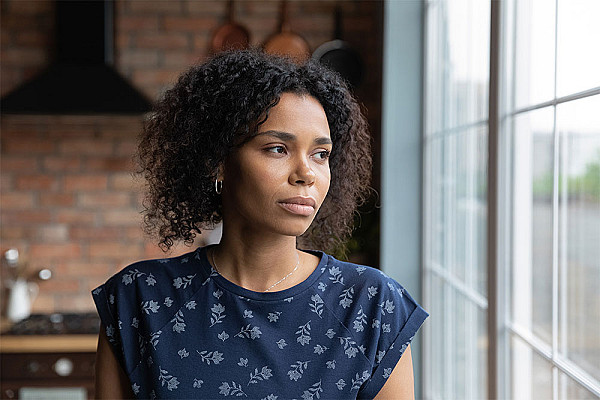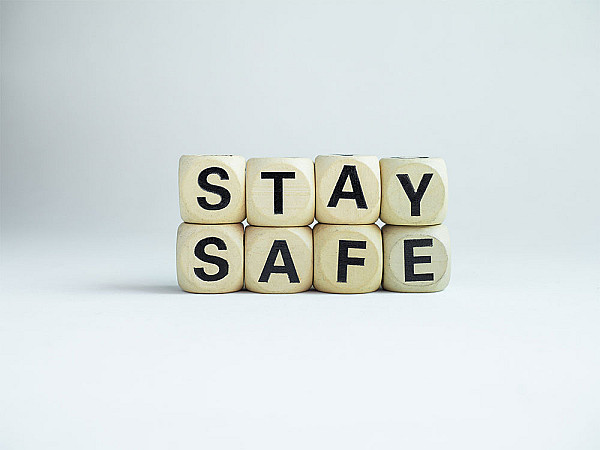Are you worried about someone else?
I’m worried about someone else…
 Domestic abuse can happen to anyone of any age and from any background. In the UK one in four women and one in six men will experience domestic abuse during their lifetime.
Domestic abuse can happen to anyone of any age and from any background. In the UK one in four women and one in six men will experience domestic abuse during their lifetime.Research shows that if someone is experiencing abuse, they are most likely to turn to someone they know – friends, family members, neighbours or colleagues.
It can be hard to know what to say when someone tells you they are experiencing abuse. It is often common for people to say “why don’t you just leave?”. It is important to remember that domestic abuse situations are often very complex and a victim is at increased risk of serious harm at the point they try to leave the relationship.
How to respond and what to say
It is common to feel like you don’t know enough to respond well, but simply listening can help, particularly when the person is able to talk to someone they trust, and offering emotional and practical support is helpful.
It is important to know that some people struggle to identify that what they are experiencing is domestic abuse, in particular control and coercion, psychological, and emotional, sexual and financial abuse.
If you are worried about a family member, friend, or colleague, convey your concern and ask if everything is okay. Gently ask about things you have noticed. Perhaps they don’t make contact with you like they used to, it could be a change in how they present, and they may be more withdrawn or quiet. It is ok to say, “You seem a bit down; I’m worried about you”.
How to respond to a disclosure
Listen with a supportive attitude and an open mind. The important things to convey are that they are not to blame for the abuse, that you are concerned and worried about them and that you want to help.
Offer to support them in accessing Specialist Domestic Abuse Support Services; they can listen, support, and advise. Discuss options available to them, enabling them to make an informed decision about what they want to do.
Safety planning
 Deciding to end an abusive relationship can be extremely difficult and it may take time to work out how to do this safely.
Deciding to end an abusive relationship can be extremely difficult and it may take time to work out how to do this safely.Ideally, ending an abusive relationship is done in a planned way with support in place, however, this is not always the case. In an emergency situation, the Police can assist with helping someone flee to a safe location. Lincolnshire Domestic Abuse Specialist Service, delivered by EDAN Lincs, can provide expert support to create safety plans to reduce the risk of harm when leaving the relationship.
Some safety information you can share with the person experiencing abuse:
- If safe to do so, pack an emergency bag to hide in a safe place in case they need to leave quickly, including items like passports, birth certificates, keys to their home or car, money, medications, some clothes and a few of their children’s toys.
- It is important to work out a plan for leaving, including who to call, where to go and how to get there, because it is difficult to think about these things quickly in an urgent / emergency situation.
- Agree on a code word so they can alert you if they are in danger and need urgent help
- Advise they keep their phone charged and on them at all times
- In an emergency advise they call the Police on 999.
- You can also offer to support the person being abused to contact Lincolnshire Domestic Abuse Specialist Service (LDASS) on 01522 510041
- If you feel that the person, or their children, are in danger or at risk of immediate harm, please do call the police on 999.
What not to do
Helping a person in an abusive relationship can be a gradual process. It is important not to pressure the person being abused into leaving, they need to make their own decisions in their own time.
Contact a professional (such as our service) for advice and direction if you have safeguarding concerns.
It is also important to make sure that you don’t do anything to provoke the person who is being abusive and to ensure you look after yourself
What else can I do to help?
If you are concerned about someone who you think may be in an abusive relationship, we would recommend seeking advice from a professional.
You can contact Lincolnshire Domestic Abuse Service for a confidential chat. You can do this anonymously if you prefer. Staff at our support hub are on hand to talk to you.
There is also the 24 hour National Domestic Abuse Helpline on 0808 200 0247
The Domestic Abuse Disclosure Scheme (also called Clare’s Law)
You can contact the Police to request information about the current or ex-partner of a friend or relative because you’re worried they might be at risk. For further information about this scheme: Lincolnshire Police - Request information under Clare's Law
Take Care of Yourself
Supporting someone in a difficult situation can be emotionally taxing. Make sure to take care of your own mental and emotional health. Seek support for yourself if needed so you can continue to be there for the person.
Remember, your compassion and support can make a significant difference in their life. By being there for them, you are helping them see that they are not alone and that there is hope for a safer, happier future.
